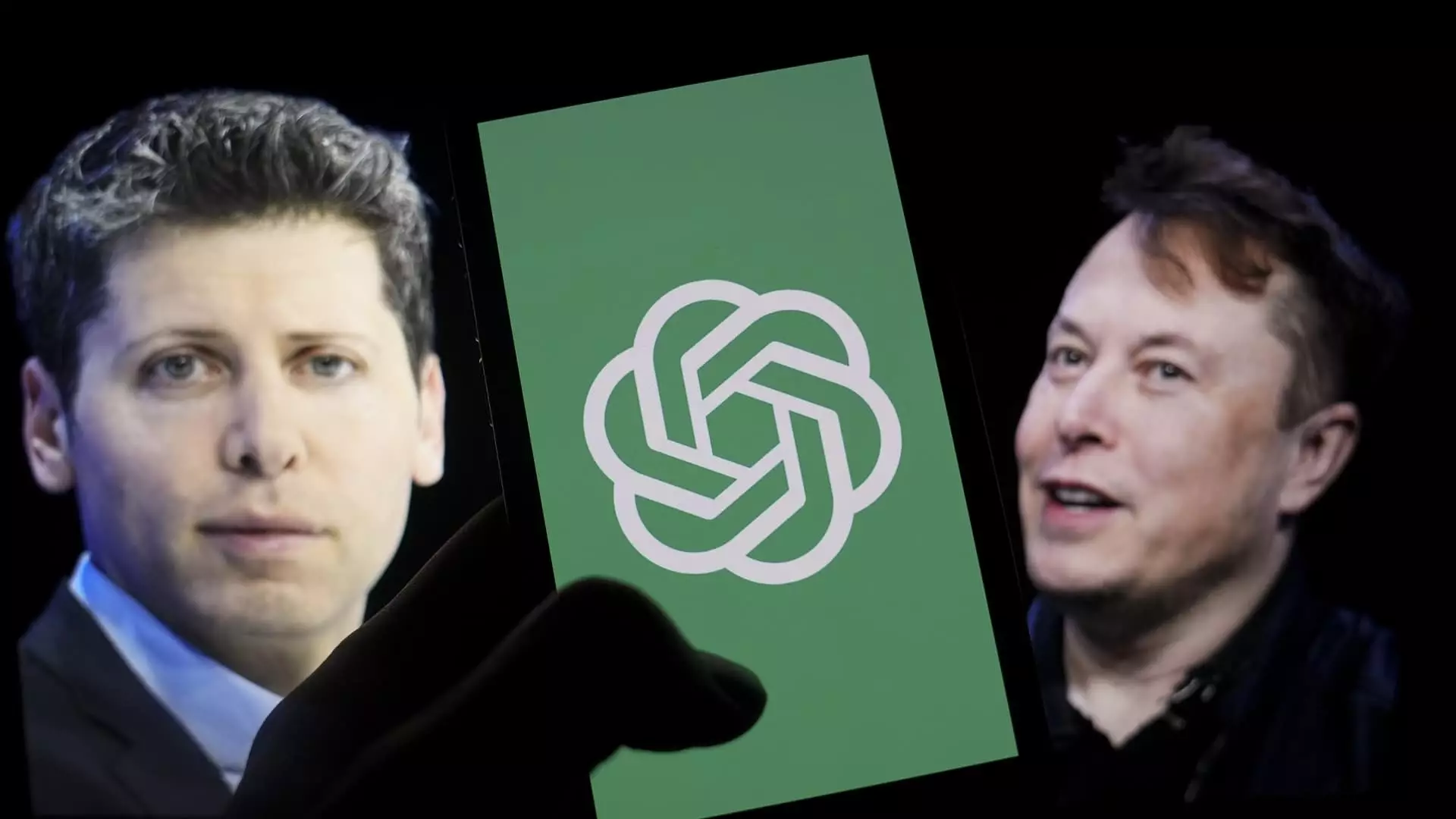In a significant escalation of tensions within the artificial intelligence (AI) landscape, Elon Musk has taken legal action against OpenAI, seeking an injunction to prevent the organization from transitioning into a fully for-profit entity. Musk, alongside his AI startup xAI and former OpenAI board member Shivon Zilis, filed this injunction in a federal court, signaling a more confrontational stance between Musk and the leadership at OpenAI, particularly CEO Sam Altman.
The legal drama began in earnest when Musk first sued OpenAI in March 2024, but withdrew the case to refile it months later in federal court. The motivations behind Musk’s legal maneuvers appear to be tied not only to competitive tensions but also to allegations of unethical operational practices within OpenAI and its investor relationships. Musk’s legal team argues that OpenAI’s actions may amount to violations of federal racketeering laws, raising the stakes in an already crowded and contentious field of AI development.
Musk’s legal complaint centers on claims that OpenAI has engaged in practices that stifle competition—specifically by allegedly asking investors to refrain from supporting competing firms, which notably includes Musk’s xAI. The lawsuit alleges that this arrangement constitutes a “group boycott,” effectively constraining xAI’s financial opportunities and growth potential. Musk’s attorneys contend that OpenAI should not benefit from information obtained through what they deem to be collaborations that violate competitive fairness.
Moreover, the legal documents highlight the intertwining of interests between OpenAI and Microsoft, as the latter has made significant investments in OpenAI amounting to nearly $14 billion. Musk’s team questions these financial relationships and their implications for future innovation in AI, suggesting that they create a monopoly-like situation detrimental to the market.
In response to Musk’s allegations, an OpenAI spokesperson characterized Musk’s latest legal thrust as “utterly without merit,” asserting that Musk is merely recycling baseless accusations. This defensiveness hints at the high stakes involved for both parties, as OpenAI has quickly become a central player in the AI industry through its successful launches—most notably the ChatGPT language model.
The assertion that Musk’s intentions are primarily retaliatory can be supported by the context in which xAI was founded. The startup seeks to carve out its market share amidst growing competition from established giants like OpenAI and new entrants like Anthropic and other tech companies. This suggests that Musk’s legal actions stem from both a personal vendetta and a genuine concern for competitive equity within the broader AI ecosystem.
The unfolding legal conflict underscores not only the individual rivalry between Musk and Altman, but also the broader implications for the AI industry. The generative AI market is projected to exceed $1 trillion within a decade, highlighting its potential for growth and disruption across various sectors. This context raises questions about how legal entanglements might affect innovation and the potential establishment of monopolistic behaviors among leading AI firms.
As Musk continues to advocate for a more decentralized AI landscape, the actions against OpenAI reflect both a desire for competitive fairness and a challenge to the current structures that govern AI development. The result of this lawsuit could set a precedent for how AI companies interact with one another, especially regarding funding arrangements and proprietary information.
As Musk’s legal battle progresses, the narrative surrounding investment and competition in the AI field will likely evolve. Regulatory scrutiny, as indicated by the Federal Trade Commission’s intentions to conduct a market inquiry into the relationships amongst AI developers and cloud service providers, suggests that there may be forthcoming changes in how industry practices are monitored.
If Musk’s claims are validated in court, we could see a reevaluation of investment practices among AI firms and greater emphasis on fostering a competitive environment. Industry collaborations, particularly those that involve significant financial backing, may come under intense scrutiny, shaping the future landscape of AI development.
Musk’s legal actions against OpenAI not only highlight his ongoing rivalry with the company but also bring to the forefront critical discussions about competition, investment, and innovation within the rapidly evolving AI sector. As the case unfolds, stakeholders across the tech industry are closely watching how these dynamics will shape the future of AI development and competition.


Leave a Reply